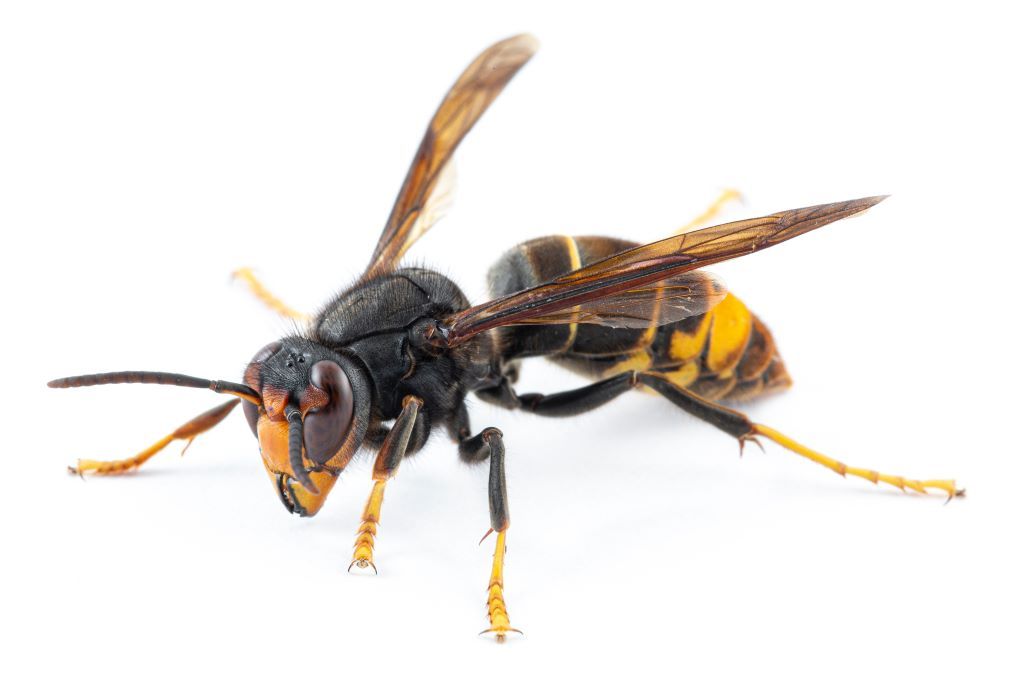
Residents of the north Lakes are being urged to report sightings of an aggressive insect that could arrive in Cumbria very soon.
It is feared that the Asian hornet is about to spread its wings and become more widespread in the UK after only being seen from time to time on these shores.
Since a fertilised Asian hornet queen arrived in France in 2004, inside a box of imported Chinese clay pots in which it had hibernated, it has spread to Spain, Majorca, Portugal, Italy, Belgium and Germany and the Channel Islands.
More than 50 per cent of the hives in these countries have been destroyed, along with other insects on which small birds depend for their survival. Each Asian hornet nest can produce 200 queens in one season. Once established, it can spread at the distance of 100km each year. Its sting can also prove fatal.
“The Asian hornet is the Putin of the insect world: small, but dangerous with invasive intent!” said Dr Margaret Riches of the Penrith and District Beekeepers. “In Asia, bees and the other insect populations have co-existed with the Asian hornet for thousands of years. They have developed strategies for evading and destroying it, but the European bees and insects do not have the benefits of this knowledge and experience, which is why they are so vulnerable to its attacks.”
Since 2016 Asian hornets have been seen from time to time in the UK, mainly in the south of England, but they are now appearing more often further north.
On each occasion they have been successfully tracked and their nests destroyed. Three weeks ago, one was found in Northumberland in a container of vegetables.
“This reminds us that it could arrive in Cumbria very soon,” said Dr Riches. “Cumbria is a perfect habitat for the Asian hornet.
“It has trees to provide the wood that it needs to create the pulp to build its nests and in which the nests can remain hidden from view in the canopy of tall trees; sources of water to enable it to mulch the wood into the pulp; plentiful supplies of bees and other insects for its food.
“It also thrives in damp, cooler conditions. The Asian hornet may arrive as a tourist, but when it does, it will be here to stay.”
Early detection is key, so that the insect can be tracked and its nests destroyed.
“During your walks in the countryside or when you are working in your garden, remain alert to the possibility of seeing an Asian hornet,” said Dr Riches. “If you think you have seen one, do not touch it.”
Instead follow the simple steps to begin the track and trace process.
Anyone spotting the insect should photograph it and send the image to alertnonnative@ceh.ac.uk attached to an email. It can also be reported via the new Asian Hornet Watch app which can be downloaded free from Google Play or the App Store. The app gives detailed ID guidance and will help to quickly record and send potential sightings. They can also visit the Cumbria Beekeepers’ Association and British Beekeepers’ Association websites.
“Your vigilance will stop this pest!” said Dr Riches. “The battle to control it has been lost on the continent. It has just begun here.
“It likes hitching a lift in caravans, cars and luggage when our holiday makers return from the continent. Please check your luggage carefully before you leave for the UK to make sure it is not hiding away to make its escape when you arrive home.”








